When OutKast’s Andre 3000 proclaimed, “The South got something to say,” after the iconic Atlanta duo won Best New Rap Group at the 1995 Source Awards, it wasn’t just about music. It was a declaration of what was to come from a city that had been overlooked one too many times. Atlanta had arrived, and it wasn’t turning back. If you ask anyone today, they’ll say that Atlanta is the culture – one that started long before 1995 and continues to define art, music and entertainment directly from the minds of those who live it. Atlanta influences everything.
Check out the Black artists from Atlanta that have made their mark on music from the early days of soul, jazz and R&B at the historic Royal Peacock club to the rise of ATL’s legendary hip-hop and Trap players.
Atlanta’s music roots run deeper than any catalog or list can contain. Listen to our Black Music Appreciation Playlist on Spotify.

Vinyls and Vintage
Atlanta’s historic Sweet Auburn district is home to several iconic moments in music and still manages to hold a special space for WERD radio, the first of its kind in America. In connection with the Madam C.J. Walker Museum, Jesse B. Blayton’s Black-owned and operated radio station ran programming on 860-AM from 1949 to 1968.
WERD museum continues to display the work of early 19th century musicians with a rare collection of vinyls and vintage record players, spilling tunes onto Hillard Street for everyone who passes by. Many of those songs are from artists with roots in Atlanta, metro Atlanta or Georgia.
Georgians you’ll hear:
Ma Rainey
Folks looking for a high time in the 1920s typically gathered at the cabaret and tent shows with a glass of moonshine, slow dragging to the Mother of Blues – Gertrude Pridgett ”Ma” Rainey.
Musical note: Ma Rainey’s House and Blues Museum recalls the Columbus star’s life and stories about Southern living, diversity, love and relationships, which inspired the hearts of many composers including trumpeter and vocalist Louis Armstrong and writers Langston Hughes and Alice Walker.
Mary Lou Williams
Mary Lou Williams developed an ear for euphonious notes at an early age by teaching herself to play piano, later funneling her talents into jazz compositions. She gained notoriety after having joined, traveled with and led Andy Kirk’s group as “the lady who swings the band.”
Musical Note: Williams continued pursuing passion arranging songs with Duke Ellington and eventually broke into the airways hosting her own piano, blues and jazz radio show.
James Brown
The Royal Peacock, originally historic Sweet Auburn’s Top Hat Club, welcomed performers like Aretha Franklin, Cab Calloway and the legendary James Brown who made his mark in the ‘50s and ‘60s with funk, rhythm and iconic dance moves, earning him the title Godfather of Soul.
Musical note: The Royal Peacock remains open for late night grooves on Auburn Avenue. Downtown Augusta recognizes Brown with a bronze life-size statue where he took his first steps in music.
Otis “Rockhouse” Redding
The King of Soul created a lyrically impressive footprint in the ‘60s, performing hits with the Mighty Panthers on the Chitlin’ Circuit before becoming a solo act.
Musical note: Although Redding’s discography leaves behind a legacy of its own, a dedicated museum in downtown Macon shares more stories about the man behind the music.
Columbus Calvin “Duke” Pearson Jr.
Duke Pearson was a homegrown jazz performer, arranger, bandleader and well-respected pianist of the 1960s. He shared his talents with the best of Atlanta’s live entertainment scene and juke joints across the East Coast.
Gladys Knight
The eight-time Grammy Award-winning, Rock & Roll Hall of Famer, World Series and Super Bowl opening voice clearly did more than conduct the “Midnight Train to Georgia.” Knight’s passion for music led to her being crowned the Empress of Soul.
Musical note: A portion of State Route 9 from Peachtree Street to 14th Street has been named Gladys Knight Highway. There was also a time when her restaurant served the best chicken & waffles on Peachtree Street.
Ray Charles Robinson
No one knows what influenced Albany’s legendary pianist Ray Charles to compose “Georgia on My Mind,” a Southern anthem that’s been praised and sung worldwide for decades. Named “Genius” by Frank Sinatra, Charles was known to be a musician of different instruments and a vocalist of several genres.
Musical Note: Performing jazz compositions with students at Morehouse College led to him receiving an honorary degree, along with the college’s performing arts center being named in his honor.
With La Carousel jazz club right around the corner at Paschal’s Hotel, WERD paved the way for Jazz 91.9 WCLK, Clark Atlanta University’s radio station. WCLK has served Atlanta classic, contemporary jazz and gospel tunes for more than 40 years and continues to provide listeners with special programs like Gene Knight’s Cafe Jazz featuring big band and bebop mixes, Rodney Evans’ gospel Joy In The Morning and more.
The Gospel
Southern Baptist churches, spiritual hymnals and Black gospel melodies have always influenced the way we enjoy music.The Atlanta Civic Center hosted the prestigious Stella Awards, while Midtown’s Fox Theatre later welcomed the esteemed Dove Awards, along with a variety of gospel industry musicians, for a weekend of celebrations. As for traditional and contemporary gospel sounds, artists like The Pace Sisters, PJ Morton, Tasha Cobbs Leonard and Lecrae contribute to vocals heard during Sunday morning services or on stage at Atlanta Gospelfest.
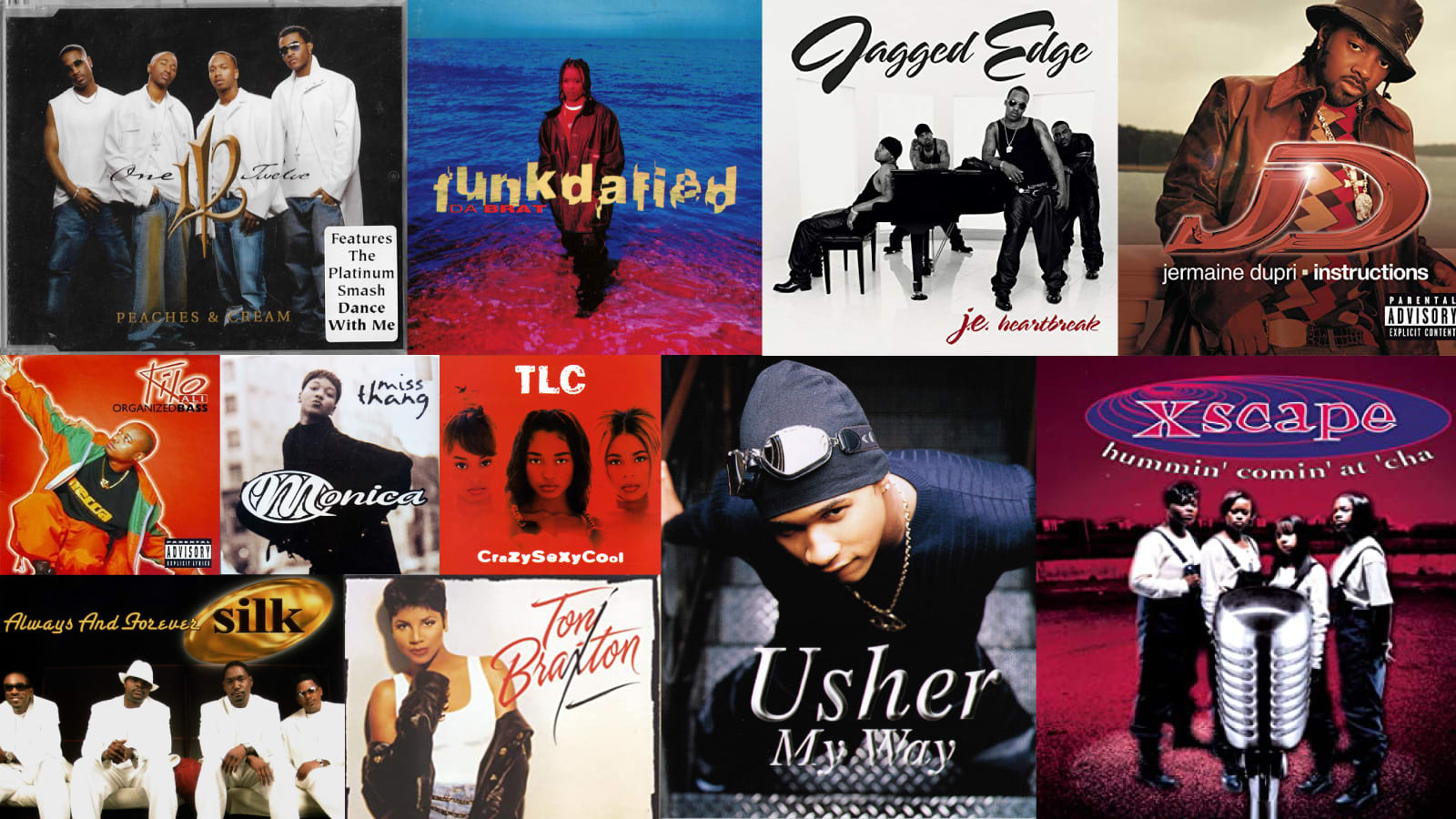
Old Atlanta
It all began with stomping and twisting to the 1982 jam, “Battmann, Let Mojo Handle It.” Mojo, Atlanta’s first rapper, put a stake in the ground with plays on the radio that introduced the city to new mainstream possibilities. Bands and live shows at Morris Brown kept it rockin’ for students along with other Atlanta hip-hop legends like MC Shy D, Tony MF Rock, Kilo Ali and Raheem the Dream.
But not too far behind was Hot 97.5, Atlanta’s first hip-hop station. Remember Chris Tucker’s rap “Gettin’ Crazy” kicking us off on Ryan Cameron’s Morning Show? Cameron did more for radio than crack jokes and report about Atlanta’s traffic during the 7 o’clock hour. He and DJ Nabs brought in the livest personalities including Chris Luva Luva (Ludacris) and Poon Daddy 🎵 (if you know, you know), who kept the latest spins on repeat every night and weekend.
Hits kept coming from TLC taking over to Da Brat, Xscape, Jagged Edge, Monica and even Kris Kross, the youngest hip-hop duo with platinum albums guaranteed to make you jump, jump. It says a lot if you recall So So Def’s Jermaine “JD” Dupri, L.A. Reid and Babyface’s LaFace Records, Ludacris’ Disturbing Tha Peace and Dallas Austin’s off-the-chart talents. If you were at ESSO or Run ‘n’ Shoot just listening to any radio station at that time, you couldn’t help but hear these artists. If not… *cues Welcome to Atlanta.*
- 112
- Da Brat
- Jagged Edge
- Jermaine Dupri
- Kilo Ali
- Monica
- Silk
- TLC
- Toni Braxton
- Usher
- Xscape
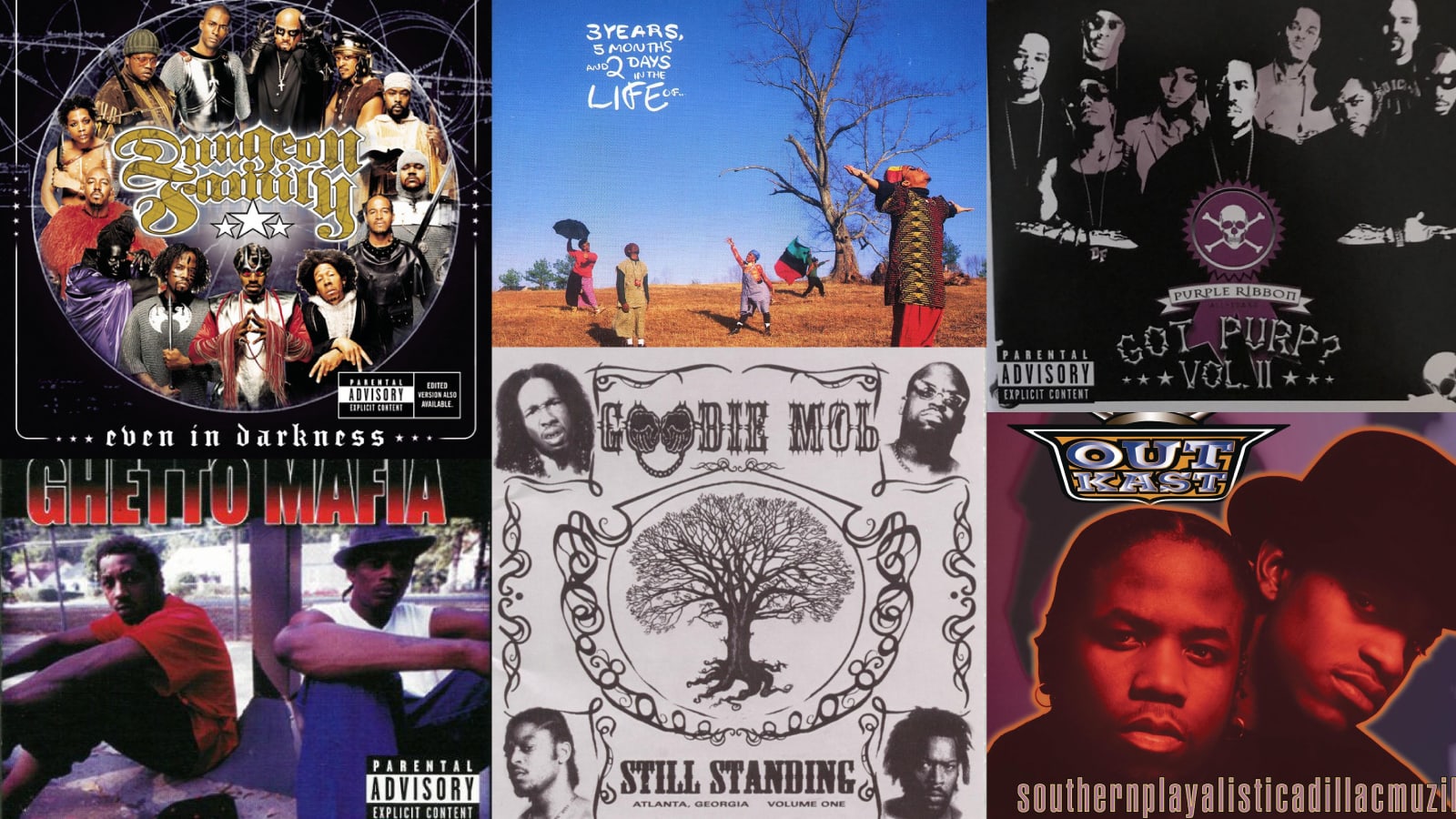
There was a time when an uprising of artists challenged “hard core” and “gangsta” as the only terms used to describe rap and hip-hop for East and West Coast listeners. Southern rap, and even Atlanta’s sound, was born and bred by ATLiens like Organized Noize who recognized talent, artists and producers who created tunes with passion and powerful lyrics. If you survey any locals on the streets of Atlanta, Old Atlanta music hits different. There’s a reason The New York Times called ATL “hip-hop’s center of gravity.” These are the pioneers and the movement.
(Please be advised: Some of the throwbacks featured on our playlist may cause you to Bankhead Bounce or do the Ragtop.)
- Arrested Development
- Dungeon Family
- Goodie Mob
- Ghetto Mafia
- Organized Noize
- OutKast
- Purple Ribbon All-Stars
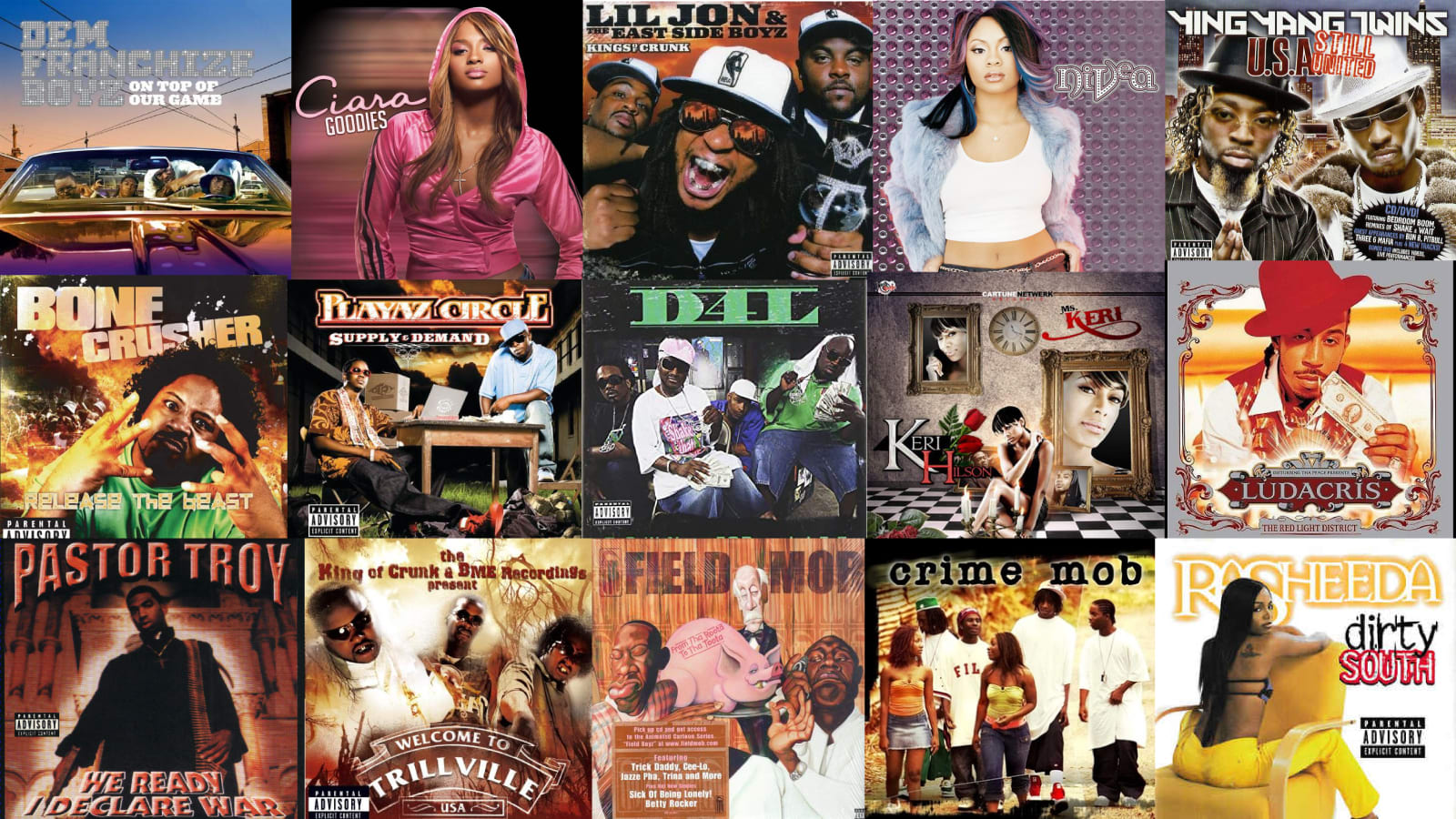
Campuses across Atlanta and especially Atlanta’s HBCUs contributed to the look and sound of the ‘80s and ‘90s. They were the interns, the street teams, the promoters, the up-and-coming talent, the audience and the emerging community and business leaders. So when it came to performances on campus, battles in the park and musical acts being launched, Atlanta University Center students’ tight-knit community had a hand in it. When college students organized picnics for their hometown classmates because they couldn’t go home for spring break, one small picnic morphed into one of the most unforgettable experiences in Atlanta in the late ‘80s and early ‘90s — Freaknik. It drove thousands to Atlanta from word of mouth, features in music videos, NBC’s “A Different World” and, of course, Spike Lee’s “School Daze.” The best part of it was how it started – college students celebrating together, hip-hop and freestyle cyphers, concerts and unity – which is often forgotten.
The late ‘90s and early 2000s became a new era and pivotal time in Atlanta’s sound, especially with the release of Outkast’s iconic “Stankonia” and the introduction of Lil Jon & the East Side Boyz’ “Who U Wit” hyping crowds to dance and represent their hood, set or clique. It was almost a guarantee to catch DJ Greg Street on Friday nights, playing local mix-tape hits at Club 559 in the West End. And let’s not forget how fast we tuned into V-103 at 6 o’clock, because we knew it was time for Greg Street to rock.
Whether you Eastside Stomped your way to the dance floor or huddled with family and friends in tall, white tees to “Lean Wit It, Rock Wit It” during a summer family reunion in the A, it was mandatory to “Walk It Out,” “Shake That Laffy Taffy,” “Swag Surf,” “Shoulda Lean,” join a battle of “Crank That” competitions or simply, get crunk. (You had to be there.)
- Bone Crusher
- Ciara
- Crime Mob
- D4L
- Dem Franchize Boyz
- Field Mob
- Jazze Pha
- Keri Hilson
- Lil Jon & The Eastside Boyz
- Ludacris
- Nivea
- Pastor Troy
- Playaz Circle
- Rasheeda
- Trillville
- Ying Yang Twins
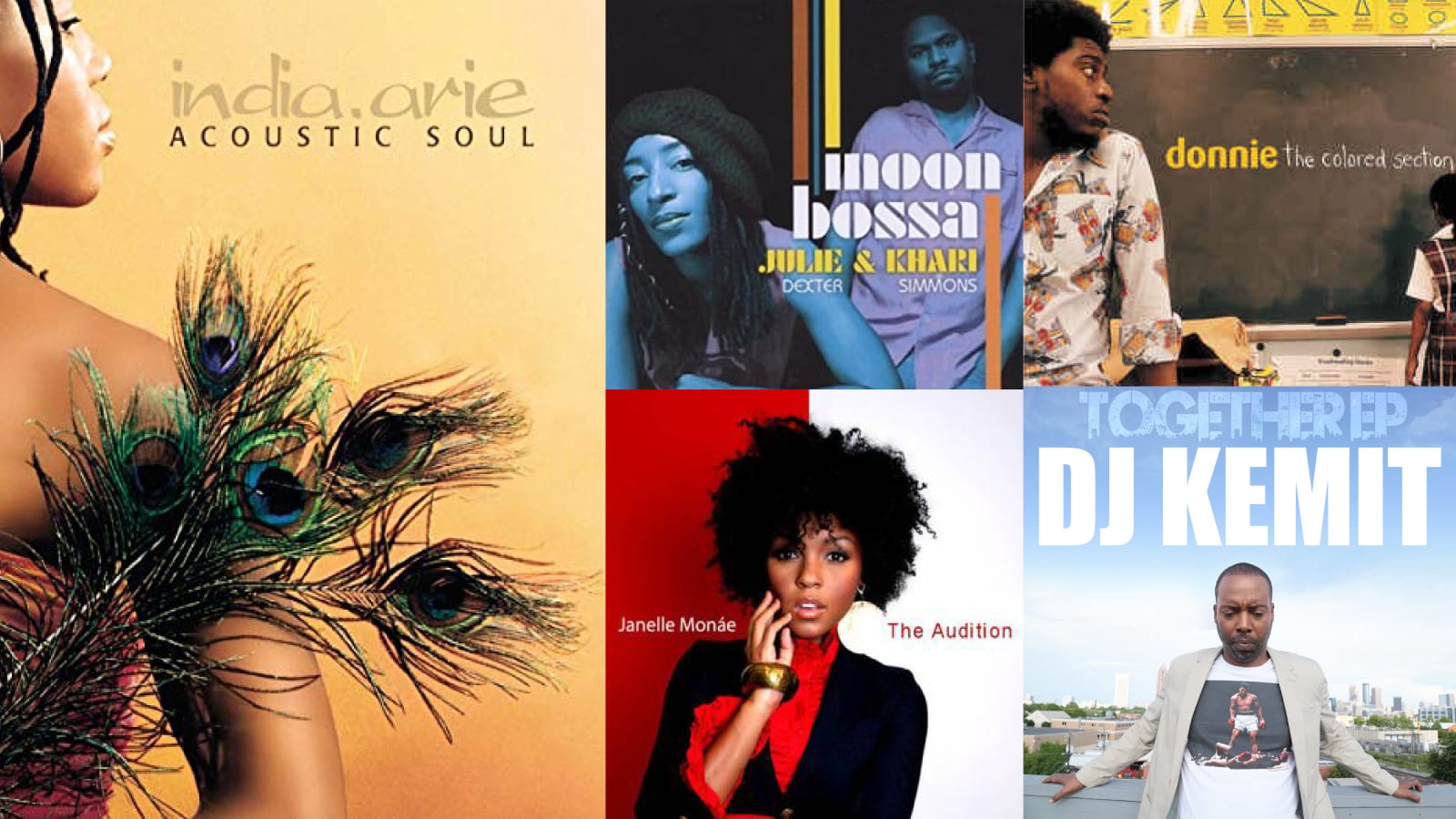
With hip-hop, Southern rap and R&B on the rise, neo-soul was one category not to be left behind. Thanks to FunkJazz Kafe, Chocolate Soul and jam sessions at Yin Yang Cafe, these safe havens were the stepping stones in the mid-’90s for local creatives. Signature poets, bands and singers including Jon Goode and India.Arie illustrated spoken word with rhythmic melodies and food for the soul. They gave us that “Love Jones” vibe.
The music kept playing at Apache Cafe in 2001, with the help of owner Asa Fain, his wife, Karen and D.R.E.S. tha BEATnik. The stage was blessed with hip-hop, jazz, reggae and open mic, so you could expect anyone from Nick Cannon to Queen Sheba or Janelle Monae.
- India.Arie
- SlamATL
- DJ Kemit
- Donnie
- Khari Simmons
- Fahamu Pecou
- Janelle Monae
On Ponce De Leon, Peachtree Street or just off of Peachtree Road, Atlanta artists were also catapulted into fame by the set DJs played and the dancing crowds in the bars and clubs. MJQ, Club Kaya, Club Esso, Club 112, Vision, Compound, Masquerade and “Puff Daddy’s” Justin’s welcomed visitors, locals and transplants to start jammin’ and made everyone feel at home. There were even a few memorable moments at Underground Atlanta.
Radio host Frank Ski’s “Northern Exposure” at Club Kaya created a spot for house music, but Atlanta’s music scene reached another peak in 2005 when Ramon Rawsoul, DJ Kemit and a small yet significant group put together the first house music festival. House in the Park is now an annual gathering of Atlanta’s best DJs bringing the heat with a mix of Afro beats, Carribean vibes and house music for all ages.
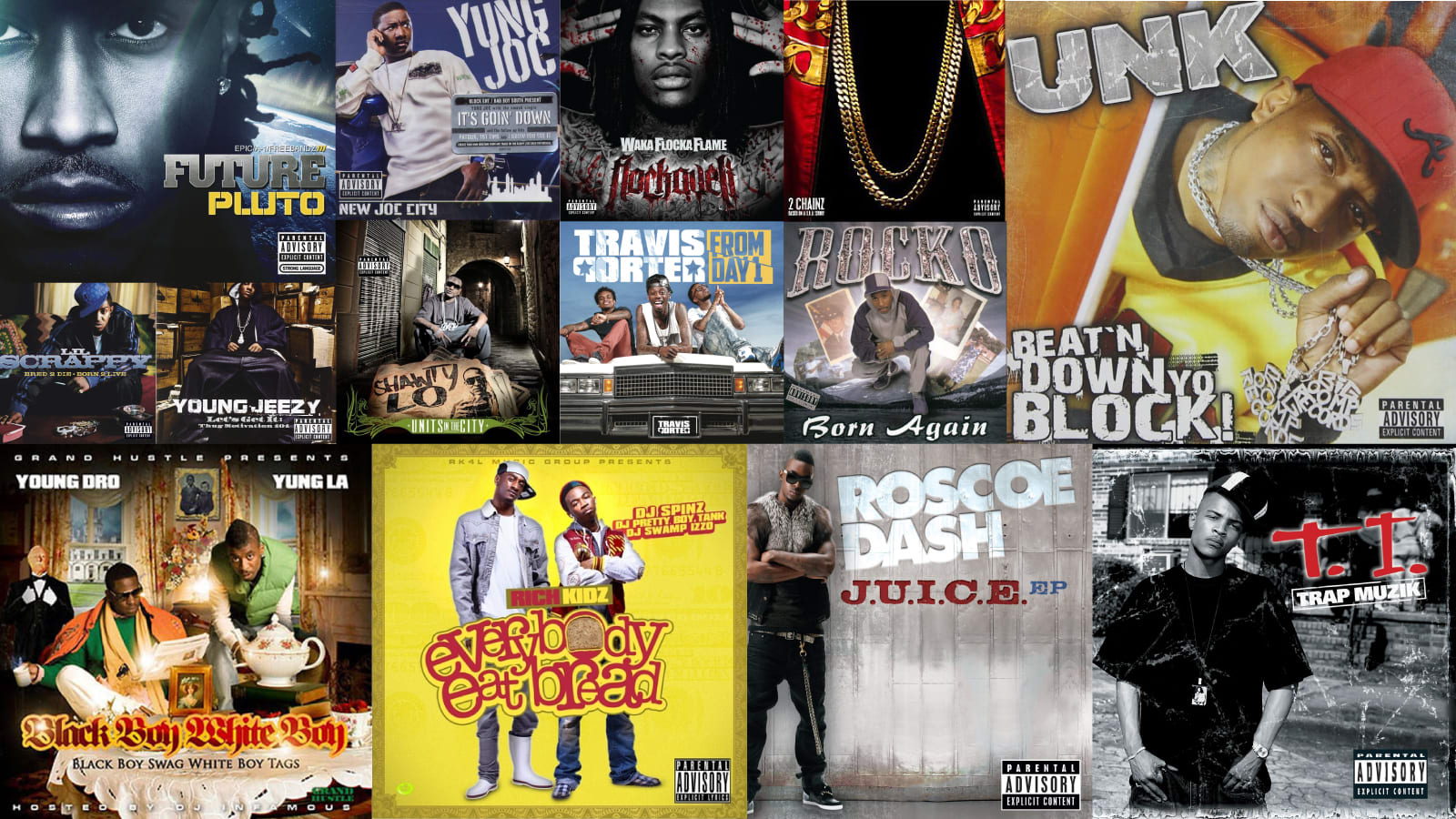
Well before Atlanta was deemed “Hollywood of the South,” the 2006 coming-of-age film “ATL” featured native personalities Monica (the most polite Waffle House waitress), Big Boi, T.I., Big Gipp, Killer Mike, Bone Crusher and Jazze Pha. Setting the scene at Westside’s Cascade Skating Rink, this cultural memoir gave us the most relatable look at the everyday life of Atlanta’s Black community.
It was only right to spotlight tons of Old Atlanta artists on the soundtrack for “ATL,” primarily touting songs from T.I. which premiered at his spot, Club Crucial. “The King of the South” and Young Jeezy “The Snowman” became the OGs of the hip-hop subgenre, trap music. Along with the “So Icy” rapper Gucci Mane, these three pioneers started a movement unlike any other, storytelling the ins and outs of trapping out the bando, hustling to make ends meet and ultimately the lifestyle of a T-R-A-P-S-T-AR.
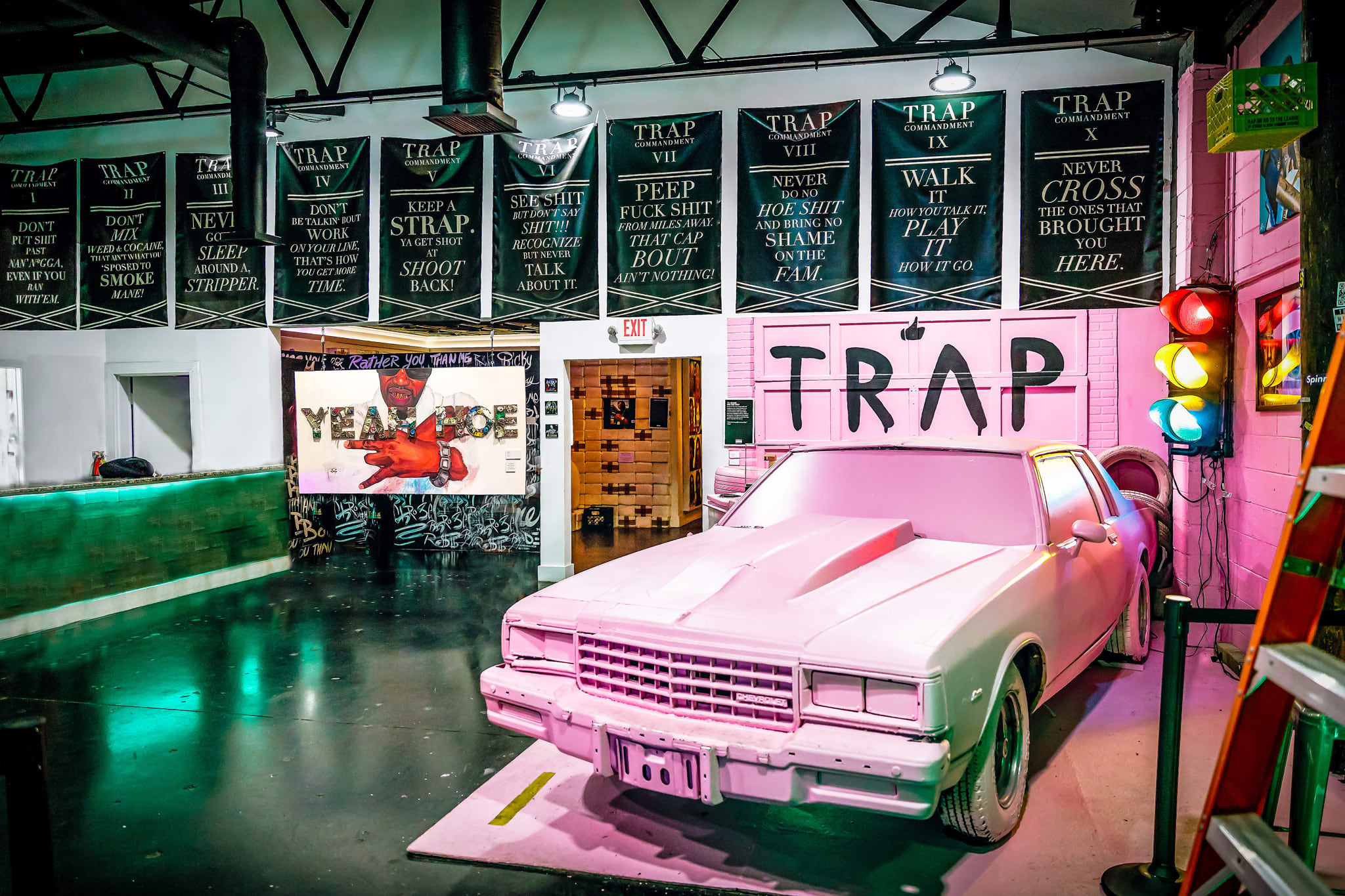
One of the most Atlanta music experiences resides in a place that captures the true essence of where the culture was birthed and cultivated into a time capsule of sorts. The Trap Music Museum started as a pop-up and turned trap music culture into an art form with exhibits recreating (not glorifying) the reality and resilience of many rappers growing up in our city. These musical geniuses are credited with laying the blueprint for trap, with 808 kick drum samples, hype bass-hitting and futuristic sounds:
- 2 Chainz
- DJ Unk
- Future
- Gucci Mane
- Jeezy
- Lil Scrappy
- Rich Kidz
- Rocko
- Roscoe Dash
- Shawty Lo
- T.I.
- Travis Porter
- Waka Flocka Flame
- Young Dro
- Yung Joc
- Yung L.A.
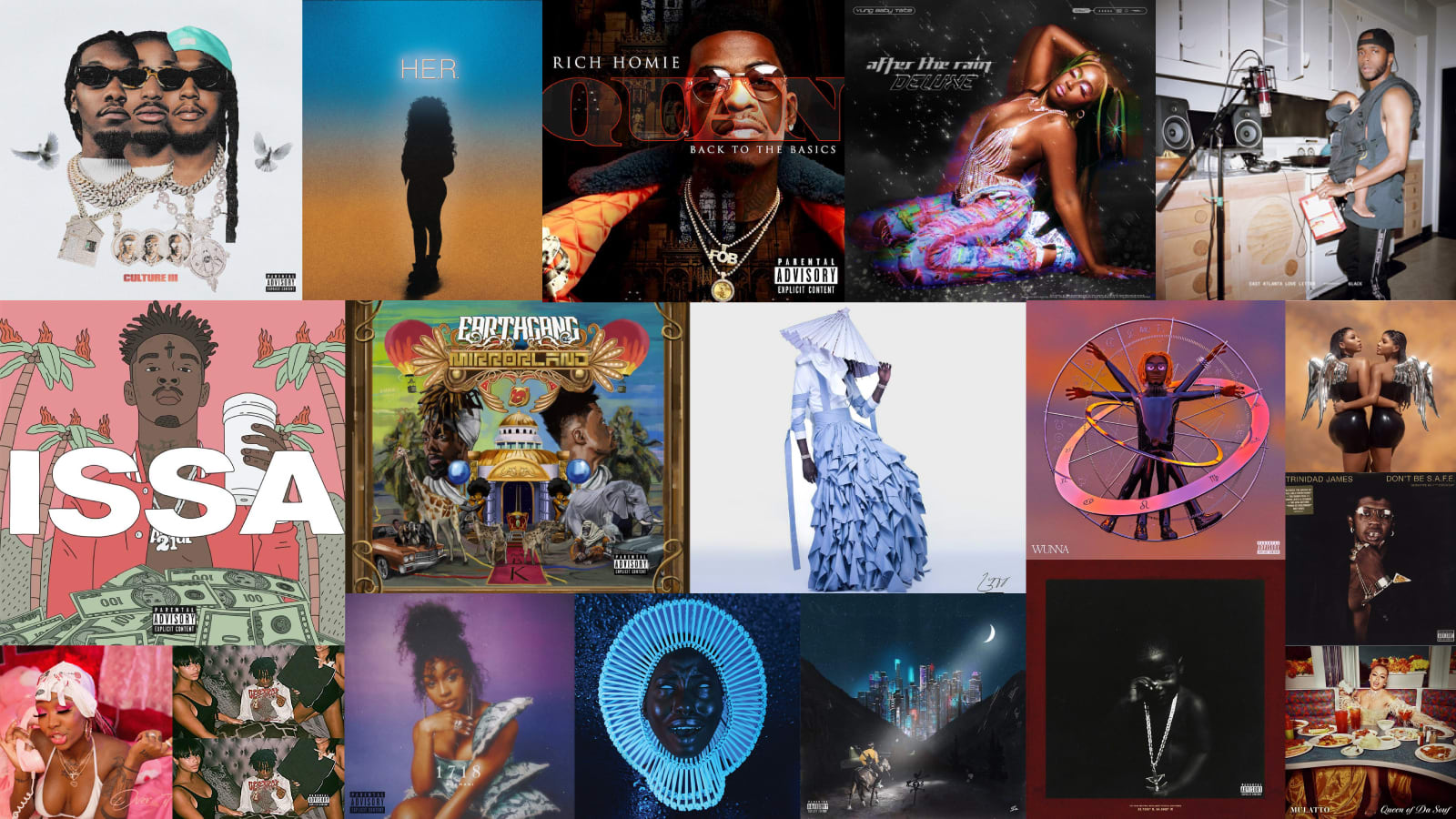
New Atlanta
Our city’s music legacy is one main reason so many make a move to Atlanta for their big break. Atlanta has a catalog of acts to show why it is the base of the musical universe, no matter the genre. Whenever a song opens with “If Young Metro Don’t Trust You,” “We Got London on the Track,” “Mike WiLL Made-It,” “OG Parker” or “Zaytoven on the Beat,” you already know it’s going to be a banger. These New Atlanta artists are known for creating mumble rap, redefining real ATL stories and taking ad libs, hip-hop and beats to another level:
- 21 Savage
- Earthgang
- Gunna
- JID
- Lil Baby
- Lil Yachty
- Migos
- Mulatto
- OG Maco
- Playboi Carti
- Rich Homie Quan
- Trinidad James
- Young Thug
- Yung Baby Tate
In a league of his own, Lil Nas X boldly infused trap and country sounds giving us “Old Town Road” (which won a Country Music Association award) and another category to remind us there’s still room to be innovative in music. Along with 6lack’s East Atlanta Love Letter album, these newer talents set the tempo for making R&B great again:
- Childish Gambino
- Chloe x Halle
- H.E.R.
- Normani
- Summer Walker
Although the future of music is to be determined, Atlanta’s creatives will continue to pioneer what’s heard next. When you are ready to recall the best recordings of music history, look to visit the Black Music & Entertainment Walk of Fame at the intersection of Martin Luther King Jr. and Northside drives and soon-to-call-Atlanta-home, the Recording Academy’s Grammy Music Museum.
Visit 44th & 3rd Bookseller in Atlanta’s historic West End to learn more about the history of hip hop and the creative genius of Black expression. Pick up books like “Contact High” by Vikki Tobak, “The Boombox Project” by Lyle Owerko (forward by Spike Lee), “Hip-Hop at the End of the World” by Ernest Paniccioli and various hip-hop publications.
Hear more authentic Atlanta music at Atlanta Jazz Festival, A3C Festival & Conference and ONE Musicfest. These three events connect and give back to the best of Atlanta’s history, business, innovation and creativity through music.